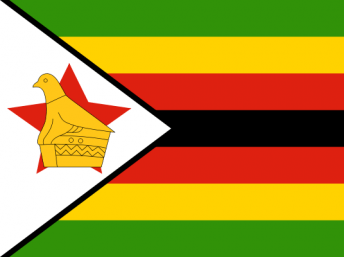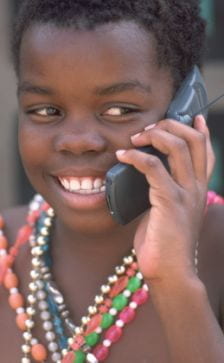 WASHINGTON – Far more households in Zimbabwe have cell phones than have radio or television, according to a Gallup survey released here this morning. And mobile telephones have become a primary source of news and information, exceeding even radio and TV in that country’s urban areas.
WASHINGTON – Far more households in Zimbabwe have cell phones than have radio or television, according to a Gallup survey released here this morning. And mobile telephones have become a primary source of news and information, exceeding even radio and TV in that country’s urban areas.
Report briefing available here:gallup-zimbabwe-brief.pdf
Power point presentation: Media-Use-in-Zimbabwe-Deck-11-7-12-FINAL-FINAL.pdf
According to the survey, 76% of Zimbabwe’s households now have a cell phone, while only 60% have a radio and fewer than half have a television set. And in cities, almost everyone has access to a mobile phone – 97% of households – and 86% of all Zimbabwe city dwellers reported using SMS over mobile telephones for news. That compares to 71% for television and 66% for radio.
Asked another way – to specify what media they had used in the previous week – SMS was again in the lead, with 71% of all Zimbabweans reporting its use, sharply higher from the 47% reported just two years ago. Those numbers compare to 60% for radio and 50% for TV, both down a few percentage points from 2010. Internet use soared to 24% in 2012, versus 4% in 2010.
Nationwide in Zimbabwe, radio is still the news source cited most frequently, with television second, the Internet third and “mobile apps” fourth. But this understates cell phone use, because in Zimbabwe, they listen to radio on their mobile phones: 23% of all Zimbabweans (and 34% of those under 30) reported radio listening on their phones.
Cell phone use explains another seemingly contradictory set of data: Only 10% of the  country’s households have a computer, but almost double that number – 19% — report using the Internet at home.
country’s households have a computer, but almost double that number – 19% — report using the Internet at home.
“This suggests people are using their mobile phones” for Internet access, said Jenna Levy of Gallup as she presented the numbers.
Among city-dwellers, 43% said they followed news reports on Facebook and other social networks, indicating a different pattern of use in Africa.
“Social networks are often belittled as a source of news and information,” said Sonja Gloeckle, Africa Research Analyst for the U.S. International Broadcasting Bureau. “Facebook [alone] was mentioned by three-quarters of Internet users, so Facebook [in Africa] goes beyond the social network function.”
Data on television viewing also had some surprises: Two-thirds of all TV owners in Zimbabwe said they have their own satellite dish – the same number that reported having an old-fashioned over-the-air antenna (obviously many households have both). So it is not a surprise that Zimbabweans are using their dishes to watch TV from other countries.
“South African TV and Botswana TV are very popular,” said Gloeckle, adding a majority of Zimbabweans – 52% — can speak English, so they can follow news and entertainment from surrounding countries.
As for what people read and hear on their cell phones, 90% reported following news headlines about Zimbabwe and 72% said they followed international news. Many turned to their mobile phones for news they could use: 82% used their cell phones for health information, and 67% used their phones to get information on crop or food prices.
The Voice of America is among broadcasters who now provide newscasts directly to cell phones. Background on VOA and other direct-to-mobile telephone services can also be found here: CIMA-Africa Digital Media – 09-18-12.pdf
The Gallup report, “Media Use in Zimbabwe 2012,” was part of a monthly series of reports on media use around the world, in partnership with the U.S. Broadcasting Board of Governors. The research seriesearlier released data on Nigeria, Iran, Indonesia, Burma and Tibet.